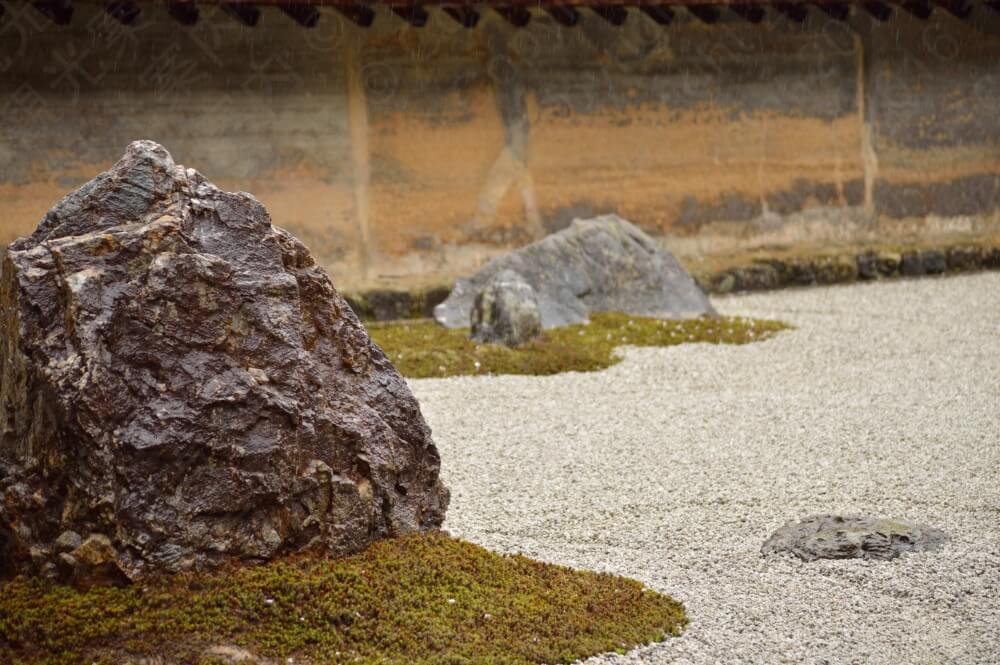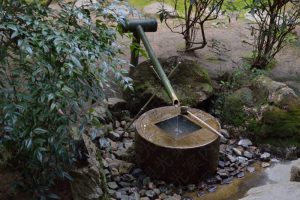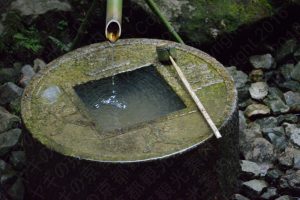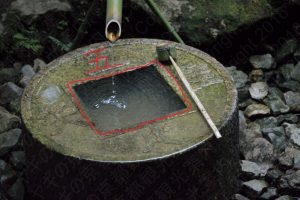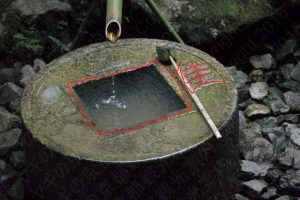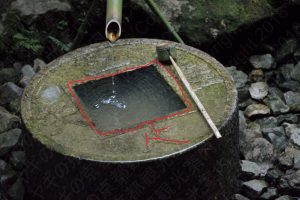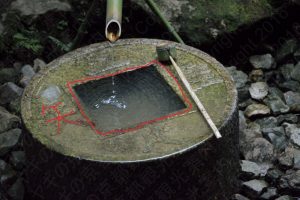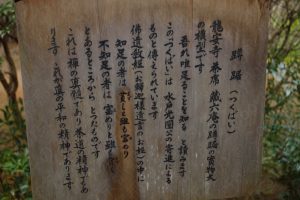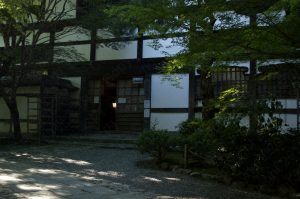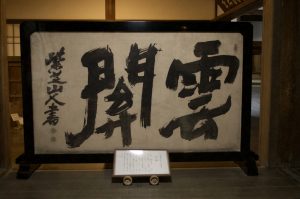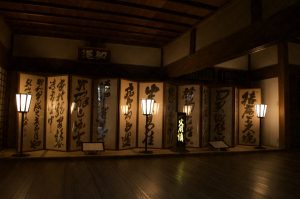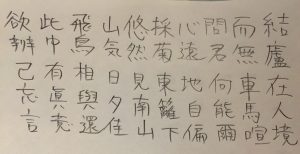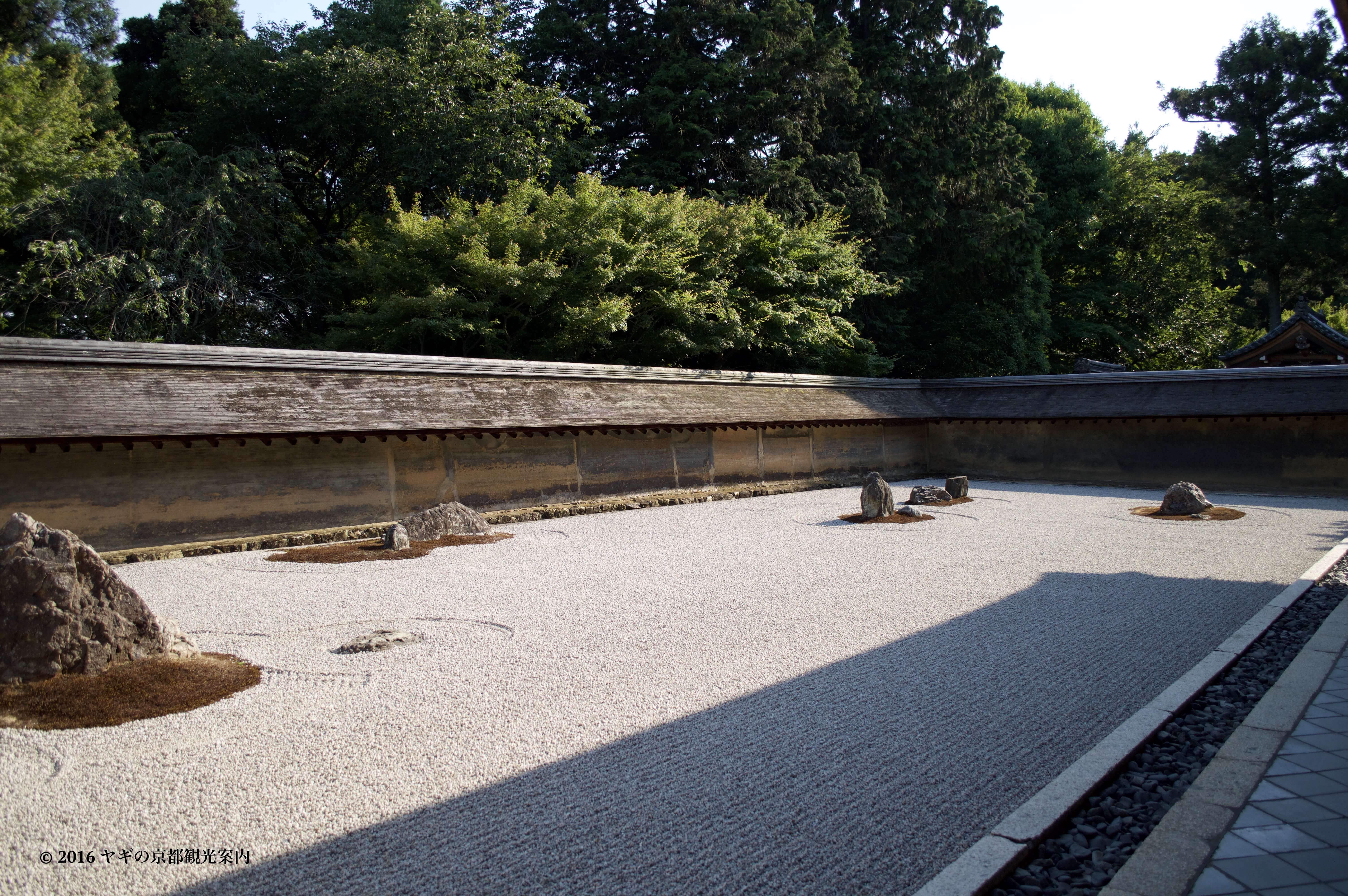Tsukubai (つくばい), a wash basin
This is a wash basin located on the other side of the rock garden. It is a replica and the authentic one belongs to the Tea room in Ryoanji temple.(We can not enter the tea room.)
Let us take a close look at it. We can see a square and some kanjis on it. The square works as a part of these kanjis.
They read in clockwise;
“吾”(ware)
“唯”(tada)
“足”(taru)
“知”(siru)
“吾唯知足” read “ware tada taru wo shiru”. This is a kind of poem in four kanjis. Kanji is very prolific and we Japanese encounter it, we can find many meanings in it simultaneously. So it is very difficult to translate the poem composed in Kanji.
The following are my translation;
I already have all I want to have./ I’ve just find I have what I want to have.
This is a description of the tsukubai. It reads “It is believed that this 吾唯知足 is quote from the Buddha’s last message:Those who are in the state of enlightenment are content though they are poor. Those who are not in the state of enlightenment are poor though they are rich.”
Kuri
Kuri (庫裡) is a main building which monks live in. Almost all Buddhist temple has it. It is adjacent to Hojo, a hall/building which abbot lives in. In these days, they don’t live there usually. There is a garden in front of Hojo. As is often the case with traditional Japanese house, we take off shoes at the entrance.
Kuri of Ryoanji, you can see huge calligraphy.
This partition might catch your eyes. These Kanji calligraphy is a poem composed by Toh Enmei (陶淵明、in Chinese, Tao Yuanming). The title is “Insyu njyusyu sonogo(飲酒二十首 其五)”, I suppose the English translation would be “Ode to drinking, chapter V”.
The kanjis on the partition is written like this.
Let us see the translation.
” As I live in a small hut, no visitors (In this poem they mean a kind of civil servant.This sentence implies that the author lives like a hermit.) disturb me.
You ask me, “Why can you stand such a circumstance?”
I dare to say, “Living without thinking for the rest of the world, we get accustomed to live in the end of the world.”
I pick chrysanthemum near the wall, catching a glimpse of mountains.
Birds are coming to their nest, how fabulous in the twilight!
That’s the absolute truth. I try to explain it with words, only to fail it.”

